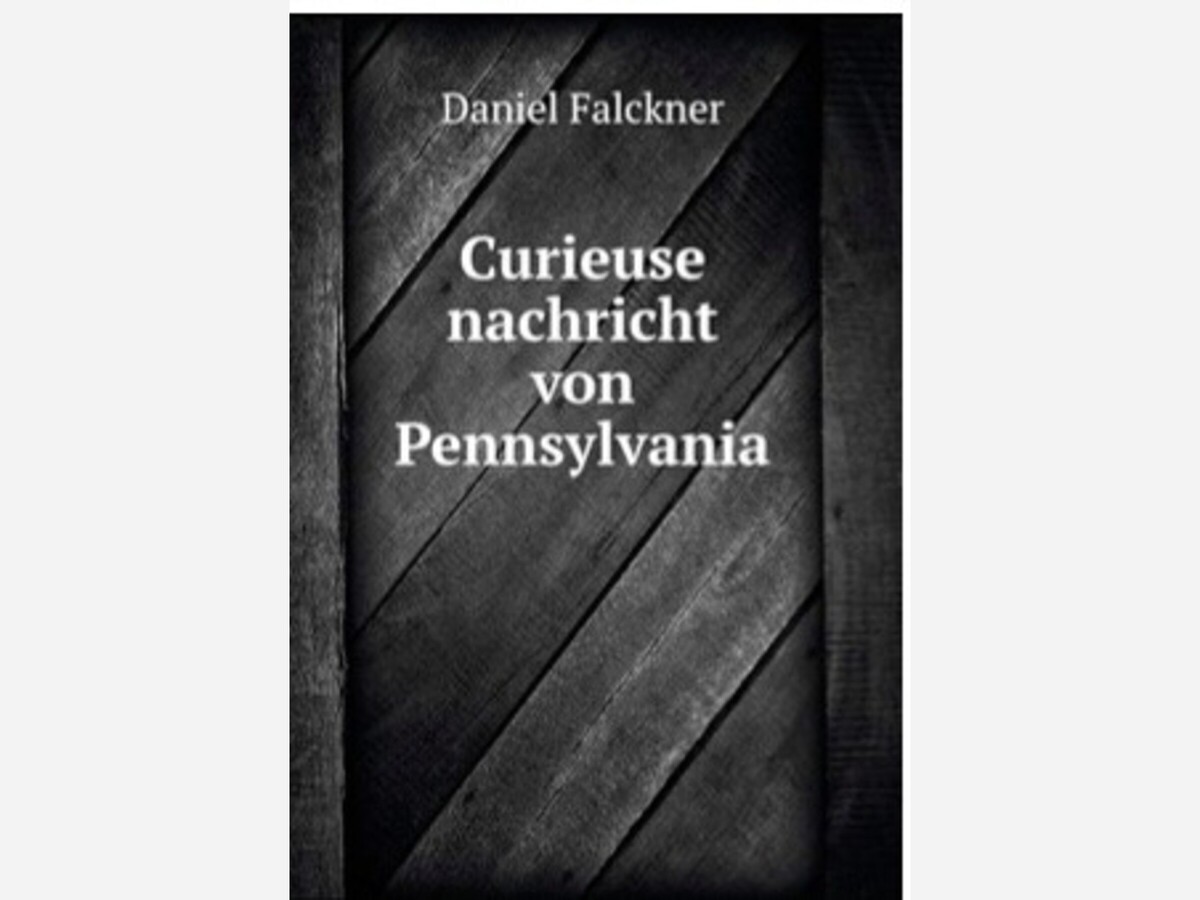Image

by Bob Wood*
For two centuries New Hanover and much of Upper Frederick were known as “Falckners Swamp,” the name-sake of Daniel Falckner who proudly signed himself “Citizen and Pilgrim in Pennsylvania.” Falckner was made popular by a book he wrote in 1700 titled Curieuse Nachricht von Pensylvania in Norden-Amerika (Accurate Tidings from Pennsylvania in North America). Published in Leipzig and Frankfort in 1702, it had a wide circulation and did much to stimulate emigration. In a question-and-answer format, the book answered questions that prospective emigrants wanted to know. But, first, a bit about that curious and enigmatic personality, Daniel Falckner.
The “falconer” family were of English origin but had emigrated to the German region of Europe in the distant past. Son and grandson of Lutheran clergymen in Saxony, Daniel (1666-1741) and his brother Justus studied for the clergy, but were not ordained before emigrating. The Falckners were men of learning, and a printed catalogue of their father’s extensive library survives. It seems that although intellectually talented, young Daniel was possessed of a somewhat unsettled personality.
He became associated with Johannes Kelpius, a dreamy Pietist philosopher, and on 7 January, 1694, at age 27 he joined about forty similarly inclined persons who sailed to America with the purpose of establishing a religious community. They settled along the Wissahickon Creek near Germantown to practice their mystically-inclined beliefs. The pietistic movement was a broad trend of the time among European Protestants to embrace religious practices that were heartfelt, emotional, and deeply personal--the opposite of empty formalism. Falckner and his associates had apparently taken an extreme form of that philosophy much given to visions, ecstatic reverie, and such. They dubbed themselves “Hermits of the Wissihickon,” and apparently led a monastic life in caves and such.
Although they apparently did live as hermits, it must not be supposed that these were just crackpots; they were quite accomplished scholars and philosophers. Such were the times.
In 1698 or 1699, Falckner returned to the Germanic region (There was no nation of Germany at the time.) as an emissary of his group to encourage others to return with him, and it was then that he wrote his popular book. It was also then that he became associated with and gained the confidence of a group of Pietists who had, almost twenty years before, bought a large parcel of land in Pennsylvania called the Frankfort Tract. Now we need to back-track a bit. To be continued.
*An inspiring Jack of all trades, master of many, Bob Wood serves as Studio B's Gallery Adjunct when he's not busy doing everything else! Writer, artist, potter, historian, and volunteer. Bob began his career as an artist following his retirement from teaching Language Arts. Bob is a popular speaker; local history is his niche. Bob has published four books on local history.